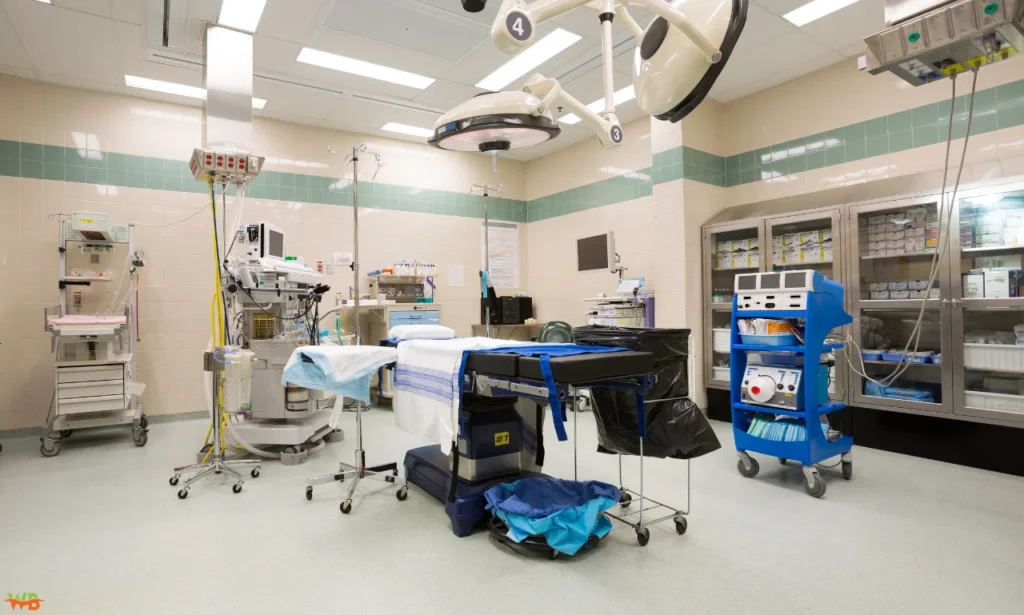
The demand for Medical Real Estate has seen a significant rise in recent years. This trend is driven by various factors including the COVID-19 pandemic, inflation, and evolving patient expectations. As the healthcare landscape continues to change, understanding the dynamics of medical real estate becomes crucial for investors and healthcare providers alike.
The Evolving Landscape of Medical Real Estate
Factors Influencing Medical Real Estate
Several key factors are shaping the current state of medical real estate:
- COVID-19 Pandemic: The pandemic has accelerated the need for adaptable healthcare spaces. Remote work and telehealth have transformed how medical services are delivered, leading to a reevaluation of traditional medical office spaces.
- Inflation: Rising inflation rates have impacted construction and purchasing costs, making it more expensive to build new healthcare facilities. This economic pressure affects both developers and independent healthcare providers.
- Shifting Patient Expectations: Modern patients expect more from their healthcare experiences. They seek convenience, accessibility, and state-of-the-art facilities, pushing the demand for innovative and customized medical spaces.
Challenges Faced by Independent Healthcare Providers
Independent healthcare providers encounter several challenges in the medical real estate market:
Escalating Rental Costs
The rising cost of renting medical office space is a significant burden. As rental prices increase, many independent practitioners find it challenging to secure affordable locations.
Rigid Lease Terms
Inflexible lease agreements can hinder healthcare providers’ ability to adapt to changing needs. Long-term leases without provisions for modification can be particularly restrictive.
Need for Specialized Infrastructure
Medical facilities require specialized infrastructure to meet regulatory standards. This includes proper ventilation, sanitation, and medical equipment installations, which can be costly and complex to implement.
The Future of Medical Real Estate

Emphasizing Flexibility and Customization
The future of Medical Real Estate lies in flexibility and customization to meet diverse healthcare needs, from primary care to specialized services such as alcohol withdrawal management. Healthcare providers increasingly require spaces that can be tailored to their specific practice requirements, ensuring optimal patient outcomes and comfort. Developers should focus on creating versatile environments that can easily adapt to different medical specialties and patient care scenarios.
Investing in Prime Locations
To stay competitive, investing in high-quality commercial locations is essential. Factors like demographic composition, ease of access, and local regulations play a crucial role in determining the success of investments.
Prioritizing Compliance and Regulation
Compliance with healthcare regulations is non-negotiable. Developers must design spaces that adhere to stringent standards, ensuring that practitioners can operate smoothly without regulatory hindrances.
Steps to Navigate Medical Real Estate Investment
1. Research the Market
Before diving into the healthcare property market, thorough research is essential. Understand the current trends, demand in specific regions, and the types of healthcare facilities that are most sought after.
2. Identify Key Locations for Medical Real Estate
Location is critical in medical real estate. Identify areas with a high demand for medical services and good accessibility. Proximity to hospitals, residential areas, and public transportation can significantly enhance the attractiveness of your property.
3. Evaluate Property Specifications
Ensure that the property meets the necessary specifications for medical use. This includes adequate space, compliance with health regulations, and the potential for customization to suit different medical practices.
4. Consider Financing Options
Medical real estate can be a significant investment. Explore various financing options, including loans and partnerships, to make the investment more feasible.
5. Work with Experienced Developers
Collaborating with developers who specialize in healthcare facilities can provide valuable insights and expertise. They can guide you through the complexities of building or renovating medical spaces to meet industry standards.
Fostering Community and Collaboration
Building a Sense of Community
Creating medical real estate spaces that foster a sense of community among healthcare practitioners is beneficial. Shared spaces and collaborative environments can enhance knowledge-sharing and support among professionals.
Encouraging Collaboration
Bringing together diverse healthcare professionals within a healthcare facility space encourages collaboration. This can lead to improved patient care and innovative solutions to common healthcare challenges.
Addressing Broader Industry Challenges

Physician Burnout
Effective medical real estate design can help mitigate physician burnout by providing comfortable, efficient, and supportive work environments.
Patient Care Coordination
Optimized medical spaces enhance patient care coordination, making it easier for practitioners to deliver high-quality services.
Resource Management
Efficient use of space and resources in healthcare facilities can lead to cost savings and better management of healthcare facilities.
Conclusion: Medical Real Estate
Medical Real Estate is a fast-changing and highly dynamic sector. By understanding the key factors influencing the market, addressing the challenges faced by healthcare providers, and focusing on future trends like flexibility, prime locations, and compliance, investors and developers can successfully navigate this complex landscape.